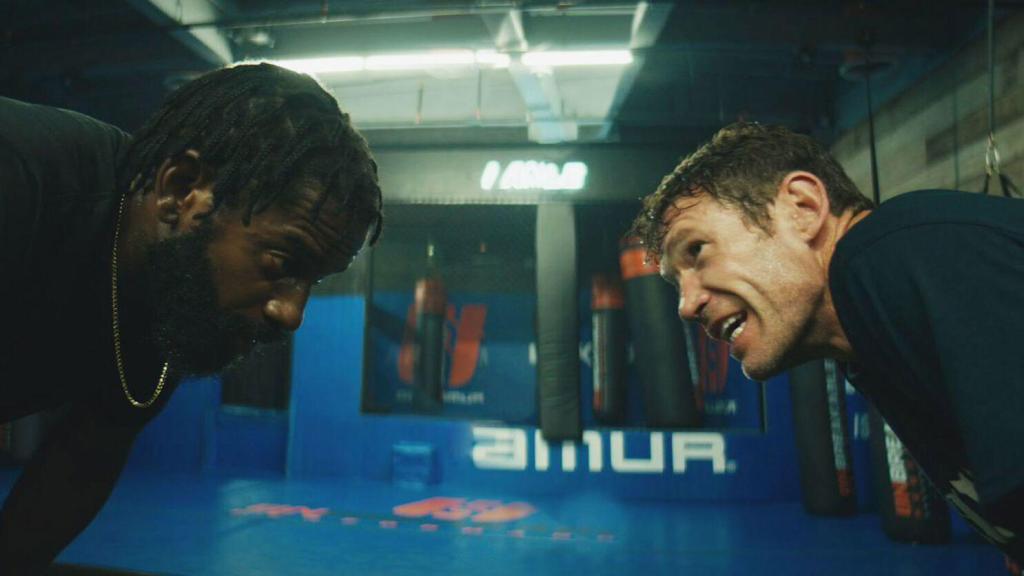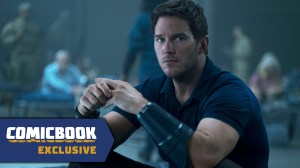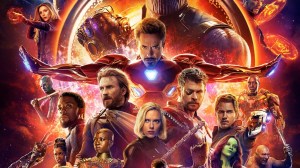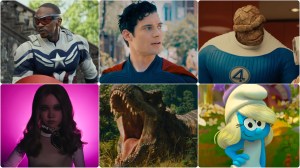MVP is a movie that clearly has a lot to say, but struggles to get it all out in a satisfying way. The film, which centers on the relationship between a homeless veteran (Zephyr, played by Nate Boyer) and an NFL player forced into retirement (Will Phillips, played by Mo McRae), is out today. It will likely connect in a big way with its target demographic, but struggle to find a broader audience. Strong performances all around can’t quite overcome a screenplay that drags, making a nearly two-hour movie feel longer than that, with some inexplicable choices along the way.
Videos by ComicBook.com
Is it bad? No, certainly not. “Merging Veterans & Players” plays across the closing credits as the film’s “full title,” but it’s also the name of a nonprofit that the movie is mean tot serve as a proxy for. The film, and the program, draws parallels between the ways that former athletes feel displaced when their careers end, and the way veterans feel when they reintegrate into civilian life. There are themes here very much worth exploring, and some compelling characters and situations through which to explore them. It mostly just feels like the movie could have used a stronger hand in the editing room.
In MVP, Will Phillips is a journeyman football player whose career ends just before the movie starts, with commentary on it from real-world commentators playing themselves. That tracks, since Fox NFL Sunday analyst Jay Glazer is a driving force behind the real-world MVP program. Invited to watch his team’s first game since he was released, Phillips instead drinks himself into a stupor and has to be taken home by Zephyr, one of the stadium’s security guards.
An uneasy friendship follows, when Phillips sees something of himself in Zephyr. He intuits that they are facing a similar emotional journey, and wants to help Zephyr and his roommates at a homeless shelter for vets — but can’t quite crack the code of communicating with them on their level, or letting them accept help from a civilian without feeling like it’s somehow condescending.
This is the strongest part of the movie; both Zephyr and Phillips are flawed but fundamentally good people, who struggle to communicate with everyone around them, but end up zeroing in on each other. It feels like the writers likely pulled elements of their stories from real-world people in the program, because there are a lot of small details that have real verisimilitude.
The film almost feels like a romantic drama, with their relationship sparking via unlikely circumstances, the pair developing an intense emotional connection in a fairly short time, and then a big blow-up fight before they settle in for the long haul as partners who have a better understanding of one another. And with that core, NFL really delivers some emotional blows in a way that’s effective, if a little emotionally manipulative.
The trouble isn’t with the relationship at the film’s core; it’s with everything else. The cinematography feels like a TV movie, and fails to totally sell the difference between Phillips’s clean and upper-class life and the gritty, barely-scraping-by existence of most of the rest of the film’s characters. It borders on commenting on it a couple of times, especially when it cuts from a scene where Phillips is with the vets, to a scene where he’s sharing a drink and a cigar with some of his athlete friends, but it stops short of really engaging with it, which is a common thread.
MVP introduces a lot of ideas, and it seems likely that they were never meant to be fully explored, but rather to serve as a jumping-off point for conversation. That’s fine when the film is being used in seminars and film classes, but it falls short of fully satisfying as a stand-alone piece of media. Too many elements are introduced, and never get a proper resolution or any kind of dramatically satisfying follow-up. In a lot of cases, these are brief moments, but in one case, it’s a full-on subplot that extends the movie’s runtime by about 10 minutes.
At one point, Zephyr has a short-lived relationship with a waitress. She’s charming, and the actor (Jack Ryan‘s Dina Shihabi) kills every scene she’s in, but ultimately their relationship is more about Zephyr’s volatility and fear of intimacy, than it is a real romance. It feels like that could have been communicated in a way that didn’t chew up screen time in a movie whose biggest enemy is its own pacing.
MVP feels like it wants to be a flashier, smarter version of something like Fireproof, the Kirk Cameron vehicle which has become a go-to for clergy who are advising couples either about to be married, or struggling with marital issues. That movie is less a coherent narrative of its own and more a reasonably engaging way to deliver a message. Profoundly didactic and lacking in any kind of subtlety, Fireproof exists to be a teaching tool, and only kind of wants to be a movie. MVP doesn’t go that far, but it certainly feels like the real-life program will be using this film as a teaching, recruiting, and fundraising tool for years to come.
It’s clear that Boyer, who directed the movie as well as starring, hopes that it stands up next to bigger movies he has acted in, including the Chris Hemsworth vehicle 12 Strong and 2020’s Run Hide Fight. The ambition elevates the material a bit, but you still can’t quite shake the feeling that some of the people in the movie are more caricature than character, existing to be the personification of some plight faced by veterans, and having little agency. As a directorial debut, it’s a solid effort. You could do a lot worse than a thoughtful story with a clear point of view and a great, well-acted relationship at its core. But it still could have used another round of edits, either on the screenplay, the final cut, or both. It lingers on some scenes too long and aborts subplots too quickly, creating an overlong movie with pacing issues that somehow still fails to fully explore some of the most interesting and impactful ideas it introduces.
Rating: 3.5/5





